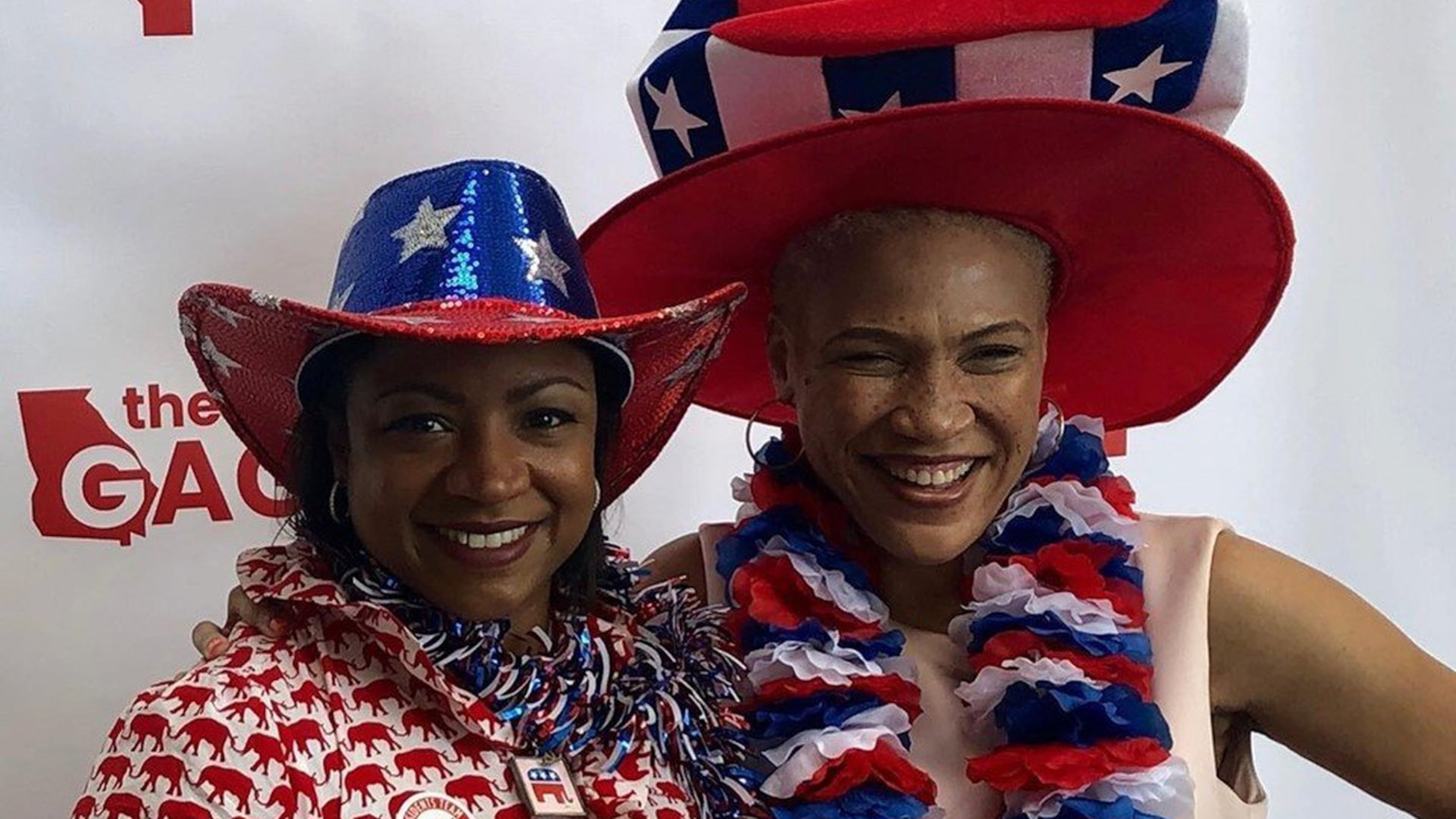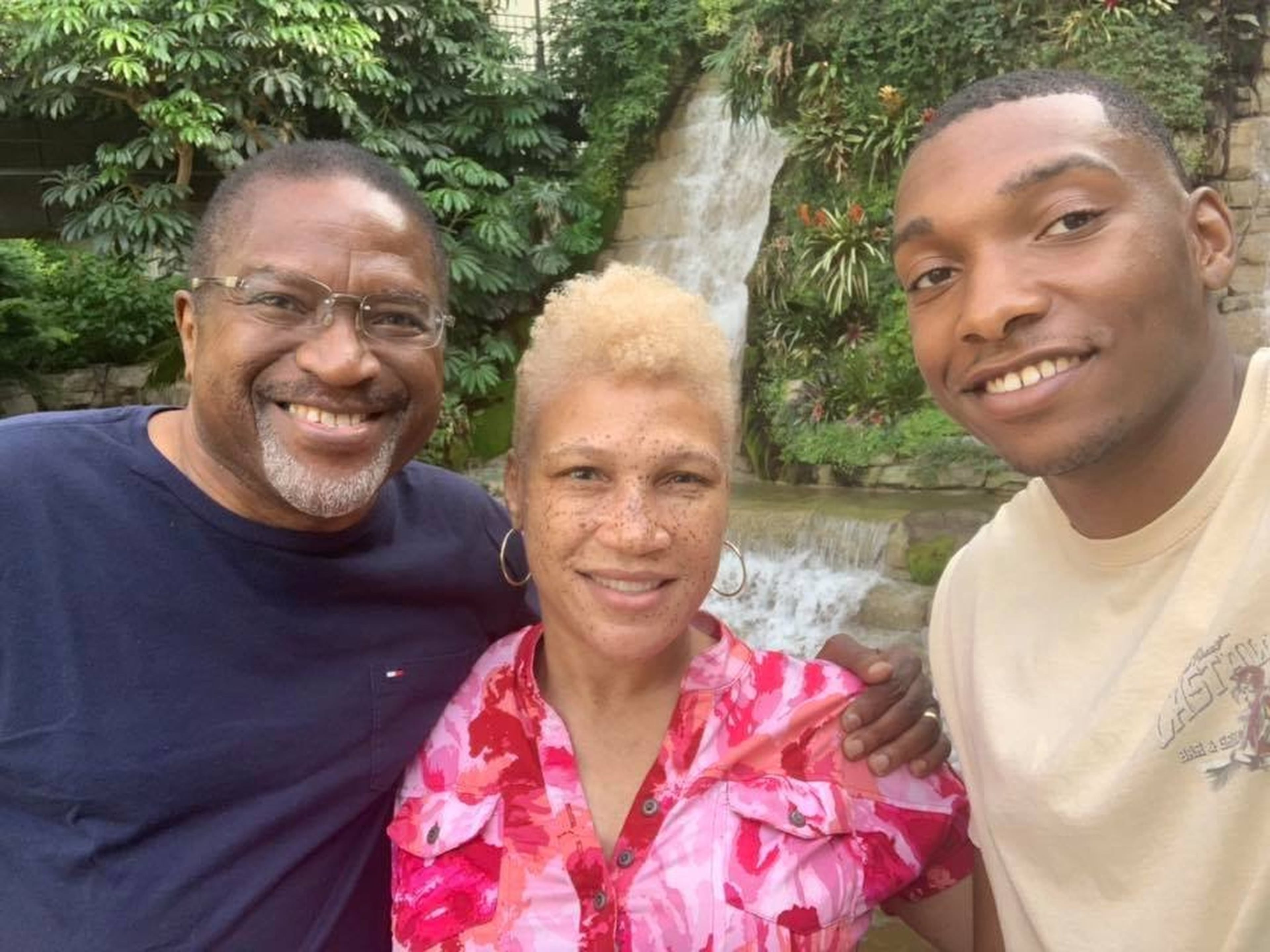Black conservatives look to gain footing in Georgia ahead of 2020

Kaaryn Walker has her work cut out for her.
How does she, a black woman, convince black people to embrace the Republican Party, conservative values and Donald J. Trump in time for the 2020 election?
“It can be very difficult being a black conservative, and you have to have a certain thickness of skin,” said Walker, who lives in Atlanta. “There are so many black Republicans and conservatives that are in the closet because of the perception that people have of the Republican Party as being the party of racism and hate. We just have to meet people where they are.”
Starting Friday, Walker’s group Black Conservatives for Truth will host a two-day summit in Atlanta to introduce conservative politicians to potential black voters.
Karen Handel, who is trying to unseat Lucy McBath in Georgia’s 6th Congressional District race, is scheduled to speak to the group Saturday night.
In 2016, only 8% of black voters cast their ballots for Trump and, according to a 2018 Pew Research Center poll, only 8% of black voters identify in some way with the Republican Party.
A recent poll by The Associated Press-NORC Center for Public Affairs Research showed that only 4% of African Americans people think Trump’s actions and policies have benefited black people.
Many also point out that Trump was slow to denounce white supremacists in Charlottesville, Va., and used derogatory language to refer to Haiti and countries in Africa.
There is only one African American in the Trump cabinet, and most of his higher-profile black supporters tend to be on the fringe figures like Candace Owens or Cleveland pastor Darrell Scott.
“It is very difficult for the party to attract African Americans because the party has a stigma that it has to overcome,” said Kirk Wilder, a local attorney who is a member Black Conservatives for Truth. “And it doesn’t help when messages coming out of the White House are not supportive of black and brown people.”
Trump is headlining a fund-raising event in Atlanta next month, and there’s speculation that he will also attend an event designed to energize black Republican voters during his visit. Friday, he is scheduled to attend a criminal justice reform forum at the historically black Benedict College in Columbia, S.C.
Walker started her organization during the 2016 election. The Facebook group has since grown into a group of about 9,000 members. She is expecting a couple of hundred people to attend the summit.
“Some people didn’t like my opinions on politics, so I said, I am going to create a group so that black people can talk about issues pertaining to us from a conservative standpoint,” Walker said. “These are things that are very difficult for black people to talk about openly. I wanted to create that space.”
Walker grew up in Charlotte and was a member of Friendship Missionary Baptist Church, where the city’s first black mayor, Harvey Gantt, also worshipped. Walker’s mother worked on Gantt’s team when he ran for the U.S. Senate against Jesse Helms, an arch-conservative often accused of being a racist.
In her closet, Walker keeps a green London Fog coat, riddled with 11 bullet holes. It belongs to her father, Bobby Burton.

On Feb. 8, 1968, Burton, was one of 200 protesters, mostly South Carolina State University students, demonstrating against racial segregation at a local bowling alley in Orangeburg. South Carolina Highway Patrol officers fired on the protesters, killing three students and wounding scores more.
Of those who survived, Burton was the worst off, shot three times in the back. One bullet is still lodged right behind his heart.
“From an emotional issue, my father was shot because of racism, because people had an emotion against black people,” Walker said. “I think that racism is an issue in America, but not as much as we think it is. I am not saying that we don’t have racism. I am saying that it is not as prevalent as it was before. I believe that people have evolved.”
A 1991 graduate of North Carolina State University, Walker first voted for president in 1988 after getting registered by Jesse Jackson.
“I will always be appreciative of Jesse because he was the catalyst. But I voted Democrat because my family voted Democrat,” Walker said. “Then I started to research my beliefs and pay attention to the elections. I realized my beliefs did not align with the party that I vote for.”

She voted for Bill Clinton in 1992, but backed his opponent, Bob Dole, in 1996. She never voted for Obama and backed Trump in 2016.
Notably, Walker is pro-life, a policy position she shares with the GOP.
Walker said it has come at a cost. The married mother of three, who is active in her church and is a member of the oldest black sorority in the country, said she has lost a sprinkling of friends who tell her they just don’t get her anymore.
“That hurts. But you can turn away and stay in the closet or be vocal and have the understanding that people will shun you,” Walker said. “I just decided that people are always going to have something to say, regardless of what you do. You can’t please the masses. Just please yourself.”
The Black Conservatives for Truth’s Minority Engagement Summit will be held Friday and Saturday at the Le Meridien Hotel, 111 Perimeter Center West, Atlanta.
On Friday, there will be a meet and greet mixer with several conservative political candidates. On Saturday, the group will hold a series of morning workshops, followed by a keynote dinner and panel discussion.


